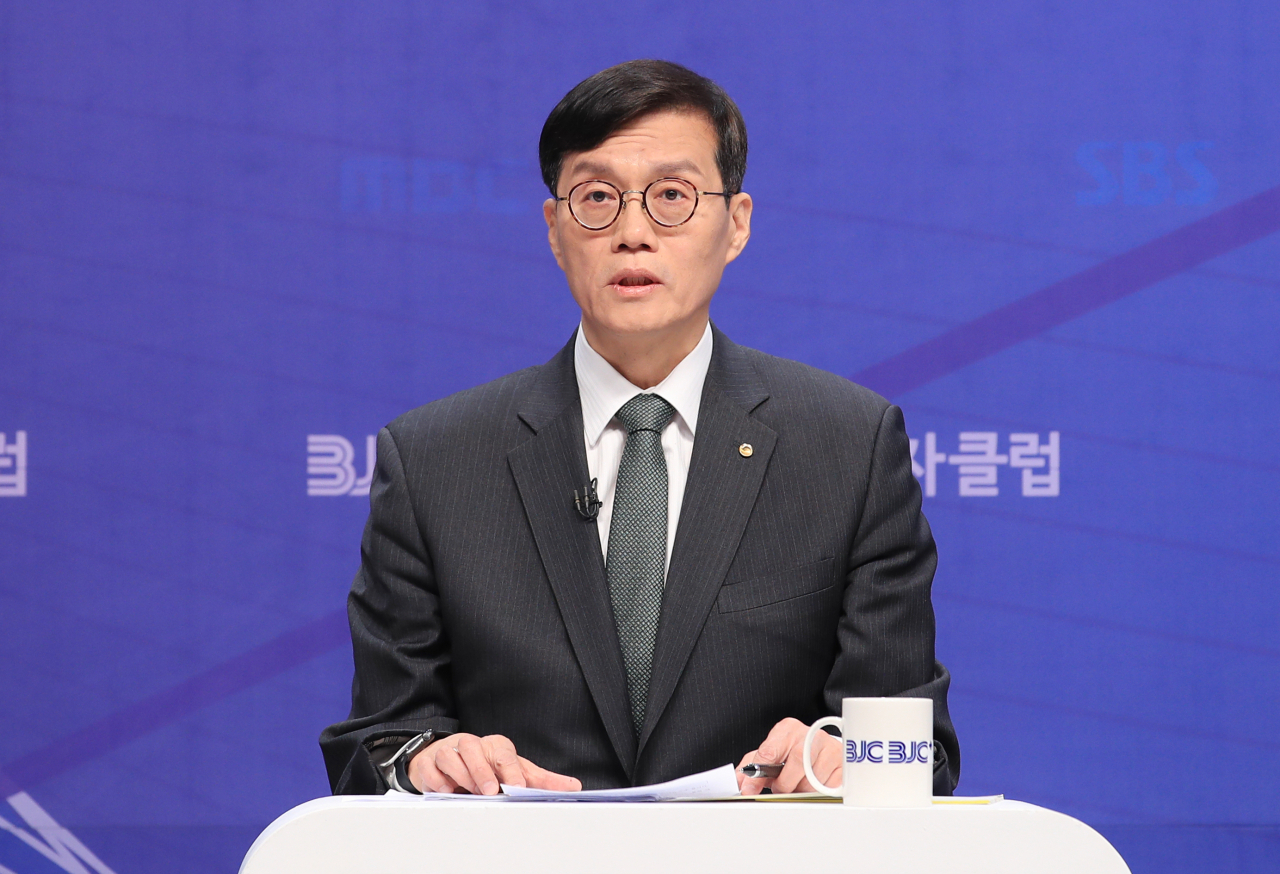 |
Bank of Korea Governor Rhee Chang-yong (Yonhap) |
Local market watchers expect the Bank of Korea to keep the base rate unchanged once again at its rate-setting meeting on Tuesday, in light of the recent slowdown in inflation. However, the recent decision to cut oil production by global oil cartel OPEC+ could complicate the situation, exacerbating inflationary pressures.
Recent figures show that inflation has passed its worst peak in Korea, easing the pressure on the central bank, which has repeatedly stressed it prioritizes price stabilization.
The consumer price index for March released Tuesday showed prices have increased by 4.2 percent compared to the year before. It is the lowest increase since the 4.1 percent recorded in March 2022.
Inflation in Korea has been easing off since it reached its peak in July, when the consumer price index hit 6.3 percent. It has stayed in the 4 percent range for two straight months, following the 4.8 percent recorded in February.
The figures match up to the projection shared by Gov. Rhee Chang-yong, in which he assessed the inflation rate will drop to 4.5 percent in March, and go down to the early-3 percent range by the end of this year.
As inflation has eased off, market watchers expect the BOK to maintain the base rate at the current 3.5 percent.
“The central bank is likely to hold the rate at the meeting,” Ahn Ye-ha, an analyst at Kiwoom Securities, said.
"It is more about whether there will be minority views calling for a rate raise or not," Ahn said, expecting one out of the six-member Monetary Policy Committee board could call for a rate rise. “Eyes will be on whether the board members will continue to keep a tight watch on inflation, when the decrease of core inflation index remains limited.”
As Ahn said, though high inflation is waning out, core inflation -- excluding volatile food and energy prices -- has yet to be tamed, rising by 4 percent on-year in March. The increase is at the same margin as the month before.
Analyst Kang Seung-won from NH Investment & Securities said the pressure on the central bank to raise the rate has been eased off, as the Fed has neared a pivot in its aggressive monetary tightening policy stance.
“With low probabilities on the Fed's terminal rate hitting 6 percent, the BOK will deliver a 3.5 percent rate freeze through the April meeting. But the central bank will not be delivering a pivot signal considering the Fed has been maintaining a hawkish stance,” Kang said.
Though the gap of differentials in the key rate of Korea and the US remains a key issue for the central bank, market watchers do not think it will be a dominant factor for the central bank’s rate-setting decision.
The current gap stands at 1.5 percent, as the US target interest rate is at 4.75-5 percent after the Federal Reserve raised the key rate by 25 basis points in March. The 1.5 percent differential is the widest gap shown since 2000.
If the BOK keeps the rate unchanged and the US Fed raises the rate by 25 basis points in early May, the gap will widen to 1.75 percent. As the next rate-setting meeting for the BOK is to take place in end-May, the gap will remain wider than ever for nearly a month, leading to concerns of outflow of foreign funds and volatility in the currency exchange market.
Yet, the gap will not be a threat for Korea if the Fed's decision matches up to market watchers’ expectations, Ahn said.
“The gap will not be a critical factor for the BOK’s decision. Even if the Fed raises the rate by 25 basis points in May, it will not be a great shock for the currency market, as the market expected this move,” Ahn said.
Additionally, volatility in the financial market escalated after Saudi Arabia and other OPEC+ oil producers announced oil output cuts. As the recent drop in consumer inflation largely stemmed from stabilized oil prices, the production cuts could lead to higher prices.
However, experts assessed that the production cuts will not directly lead to jumps in oil prices.
“Despite the cuts, oil prices are not likely to soar due to the risks of banking crises and economic uncertainties,” analyst Oh Jae-young at KB Securities said. “Rather, the oil production cuts reflect a weakened global demand. The prices will remain stable overall.”







![[Weekender] Korea's traditional sauce culture gains global recognition](http://res.heraldm.com/phpwas/restmb_idxmake.php?idx=644&simg=/content/image/2024/11/21/20241121050153_0.jpg)